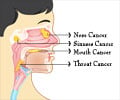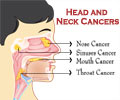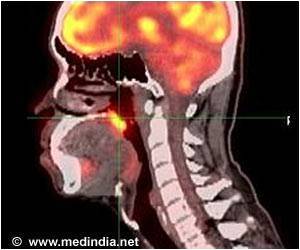New combination therapy was effective in patients with head and neck cancer, said researchers.

‘A new study has found an approved drug could make radiation therapy more effective for head and cancer patients. ’





Since they're using a Food and Drug Administration-approved drug to do it, this could help humans sooner than later. These findings are published in the journal Cancer Letters.
Christina Wicker, PhD, a postdoctoral fellow in the lab of Vinita Takiar, MD, PhD, led this research which she says will hopefully extend the lives of patients one day.
"Head and neck cancer, like any cancer, is truly life-altering," she says. "Head and neck cancer could impact your throat, tongue or nose, and patients often can't swallow, talk or eat; it truly takes away some of the most social, enjoyable parts of life."
Researchers in this study combined radiation therapy with a drug (telaglenastat) that stops a key enzyme in a cell pathway that becomes altered in cancer cells, causing those cells to grow rapidly and resist treatment. Wicker says this drug has already been studied in multiple clinical trials to see if it could improve treatment of various cancers.
Advertisement
Using animal models, researchers found that the drug alone reduced the growth of head and neck cancer cells up to 90%, and it also increased the efficacy of radiation in animals with head and neck tumors by 40%.
"With these results, and especially with previous clinical trials showing that the drug is well tolerated by patients, there is the potential to move more rapidly into head and neck cancer clinical trials," Wicker says. "In the future, we hope this drug will be used to make radiation treatments for head and neck cancer even more effective."
Currently, the most common treatment for that cancer is radiation therapy, but the cancer eventually returns in up to half of patients, Wicker says, and often it doesn't respond as positively to treatment the second time around.
"When [traditional] drugs are less effective, cancer growth becomes difficult to control, which can lead to the cancer quickly spreading to other organs," she says.
"It is very important that scientists and clinicians develop new cancer treatments to improve treatment of this type of cancer, and hopefully our findings will provide one more option to help patients."
Source-Eurekalert











